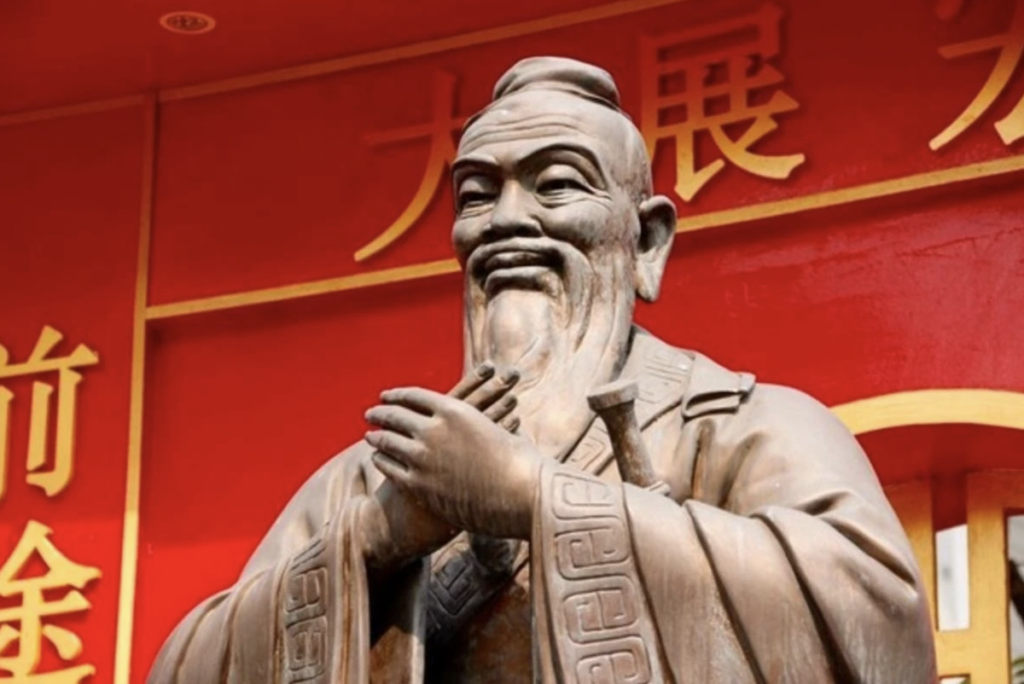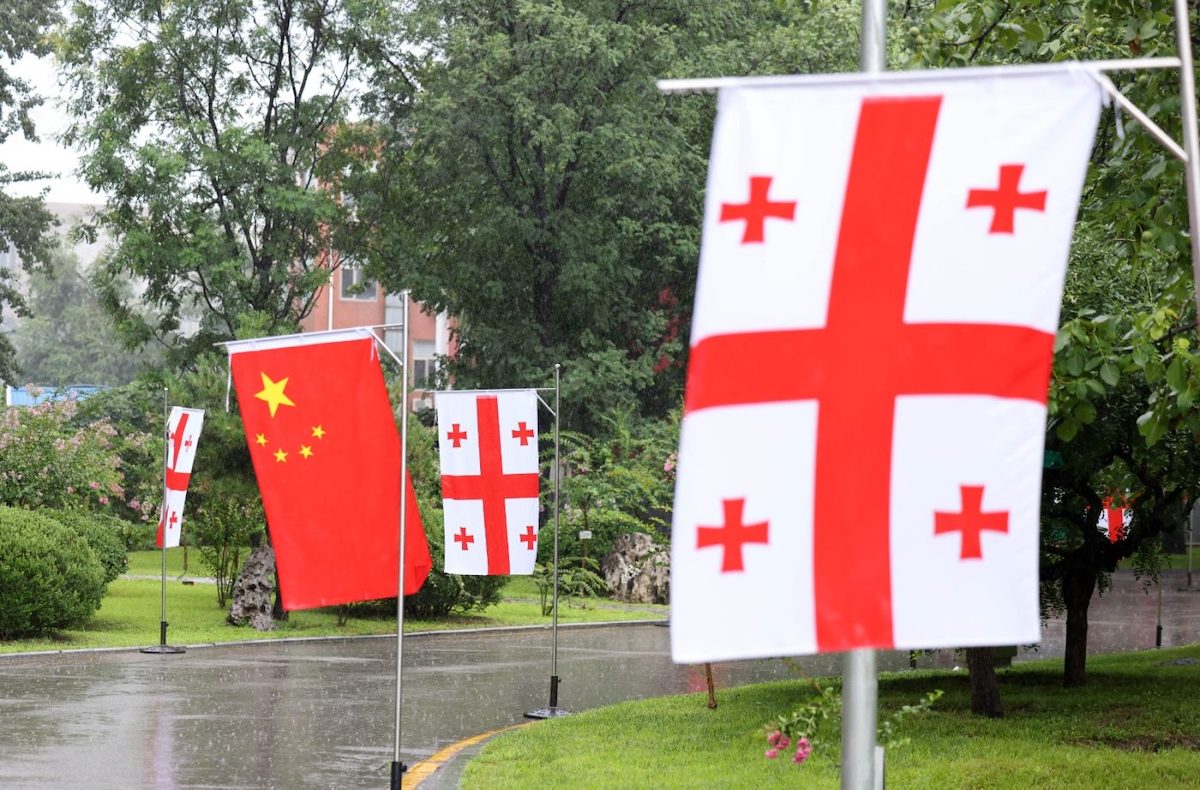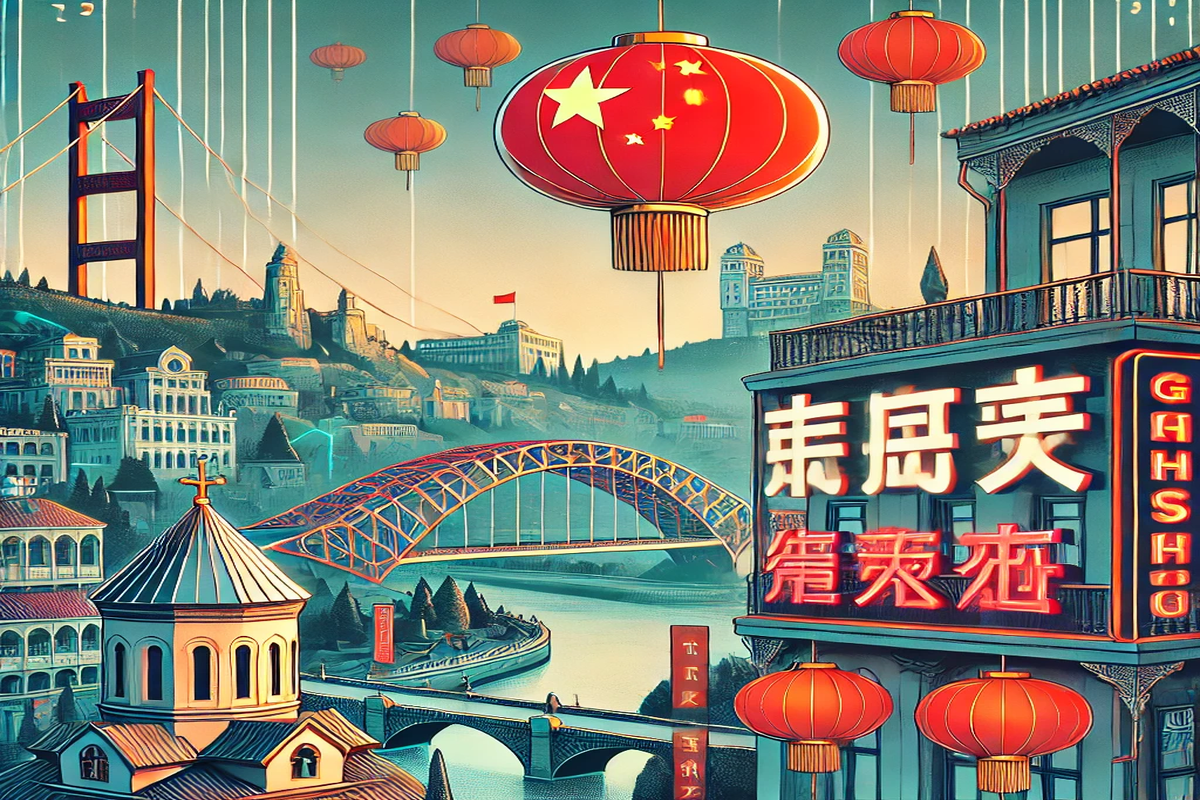China’s soft power in Georgia: harmless cultural exchange or political calculation?
China’s soft power in Georgia

Alongside economic and political ties, cultural cooperation between Georgia and China has expanded significantly in recent years. At first glance, this seems natural: film, theatre, music and art can indeed bring nations closer together.
But with a powerful state like China, cultural exchange often serves as a cover. In reality, it is part of a broader strategy to advance economic interests and strengthen political influence.
On 31 July 2023, Georgia and China signed a strategic partnership agreement, one of its main areas being cultural cooperation – from tourism and sport to film and media.
“Behind this seemingly harmless document lie Beijing’s serious political calculations,” say analysts from the thinktank Civil Idea, which has been studying the spread of Chinese soft power in Georgia for more than eight years.
Culture is one of China’s main tools of soft power. Beijing uses it in different ways, but always for the same purpose worldwide – promoting the Chinese model of governance, countering and replacing western influence, and reinforcing its position on Taiwan, Tibet and other sensitive issues.
“The west understands this well and treats cultural partnerships with China cautiously,” the authors of the study write. In their view, the ruling Georgian Dream party ignores this experience and is taking steps that go against the country’s strategic interests.
Soft power: China’s global strategy and its application in Georgia
The term “soft power,” defined in the west by political scientist Joseph Nye as “the ability of a country to influence others not through coercion but through attraction,” has been a tool of Beijing’s foreign policy for more than two decades.
In 2007, former Communist party leader Hu Jintao told the party congress that the cultural industry should be the foundation of China’s soft power. Under Xi Jinping, this policy became a clear priority. “We must craft a positive Chinese narrative and convey China’s messages to the world in the right way,” Xi told a party conference on international relations in 2014.
Today, one of China’s long-term strategic goals is to strengthen its influence in culture, media, film and science.
International rankings confirm this ambition: in 2024 China overtook Germany in the Brand Finance Global Soft Power index and was named the world’s fastest-growing soft power.
Since around 2020, Georgia too has become part of this global policy. Alongside Georgian Dream’s increasingly pro-China rhetoric, recent years have seen a series of symbolic steps in cultural cooperation. These may appear harmless at first glance, but in reality they serve to expand Beijing’s influence.
All of this is part of a single process – an “operation” aimed at reinforcing China’s positive image in Georgian society, according to Civic Idea.
Timeline of China – Georgia cultural ties (2020–2024)
18 December 2020 – the first step
Georgia’s ambassador Archil Kalandia meets in Beijing with senior Chinese culture ministry official Xie Jining. Officially, the talks are about tourism and culture, but in fact they mark the start of a new wave of Chinese soft power in Georgia.
2021 – strategic protocol
The culture ministries of Georgia and China sign a four-year agreement, laying the foundation for systematic cooperation.
September 2022 – cultural diplomacy in parliament
Elisso Bolkvadze, head of the Georgian parliament’s culture committee, meets the Chinese ambassador and agrees on joint projects. This is already clear “cultural diplomacy” in the Chinese style – friendly on the surface but with a distinct political undertone.
17 September 2023 – Chinese film festival in Tbilisi
A Chinese film festival opens at the National Archives cinema, organised by the Chinese embassy and film bureau. At the same time, the visiting delegation meets local filmmakers. A textbook example of soft power in action: cinema as both a cultural bridge and a tool to “humanise” China in political discourse.
Autumn 2023 – Chinese delegations in Tbilisi
Film bureau officials visit Georgia’s culture ministry and parliament. The theme is the same – “bringing nations closer through culture.”
14 June 2024 – visit to Shandong province
Bolkvadze meets the head of the foreign affairs office of Shandong province. The official message: “culture brings nations together.”
28 June 2024 – Jiangsu delegation in Tbilisi
Georgia’s culture committee hosts a government delegation from Jiangsu province. Talks focus on deepening cultural cooperation.
Summer 2024 – sport on the agenda
Irakli Medzmariashvili, chair of the sports committee, meets China’s acting ambassador and agrees on joint training projects. Soft power extends into sport.
2024 – world Chinese language conference in Beijing
Deputy education minister Tamar Makharashvili takes part in the World Chinese Language Conference in Beijing – a sign that Chinese has now entered Georgia’s official education agenda.
Film A Third of a Century: Georgia–China as a propaganda tool
Georgia’s ruling party, Georgian Dream, is directly involved in strengthening China’s soft power.
In December 2024, after prime minister Irakli Kobakhidze announced the suspension of Georgia’s EU integration process – a move that triggered pro-European protests and a political crisis – Georgian Dream MP Irakli Mezurnishvili presented a documentary film titled A Third of a Century: Georgia–China.
The film covers different areas of Georgian–Chinese relations: politics, economy and culture. But its main aim is to present China as a reliable partner and to bolster pro-China sentiment in Georgia.
It opens with shots of Anaklia – where a Chinese company is set to build a deep-water port – followed by a local resident saying to camera: “We are expecting Chinese ships here very soon.”
The film then features China’s ambassador Zhou Qian, Georgian prime minister Irakli Kobakhidze, ambassador Paata Kalandadze and parliament vice-speaker Giorgi Volski. Against a backdrop of footage from China, they speak about the importance of cooperation with Beijing, investment and trade prospects.
A large part of the film focuses on the deep-water port at Anaklia. Although talks with a Chinese state company are still ongoing, the project is already presented as a joint victory for Georgian Dream and China. In one scene, Irakli Kobakhidze says:
“Georgia and China are linked by a number of important projects, but I would single one out – the Anaklia deep-water port project, which will be carried out together with our Chinese partners.”
Analysts note that this message has a dual purpose: to boost pro-China sentiment among Georgians, and to signal to an international audience that Georgia no longer hides its choice of strategic partner.
The film also highlights respect for traditions in both China and Georgia. This is no accident: it reinforces Georgian Dream’s anti-western narrative, which claims the west seeks to strip Georgia of its traditions.
“Both China and Georgia are characterised by centuries-old cultures and traditions, and this is an important factor in developing relations between the two countries. When nations have deep roots in the form of traditions, that is a very important factor,” Kobakhidze says in the film.
“Traditions are the foundation of a nation’s identity. It is traditions, accumulated over millennia, that give China and Georgia their sense of dignity and self-confidence. Traditions are valuable for both countries,” adds China’s ambassador.
China’s soft power in Georgia is not limited to the present – it also reconstructs the past to build a foundation for the future.
In A Third of a Century, special attention is given to Lao Jin Zhao, a Chinese man who, according to the film, first brought tea to Georgia and lived near Batumi until the 1920s.
The story seems flawless: tea as a cultural bridge linking two peoples. But here too the careful architecture of Beijing’s narrative is evident. Information about a film on Lao Jin Zhao first appeared in 2018, but it only took shape in 2024.
That same year, Adjara’s cultural heritage agency chief, Zaur Akhvlediani, announced that a Lao Jin Zhao house-museum would open in Chakvi in 2025. The restoration budget is 910,000 lari, with the latest digital and LED technology supplied by China.
The story gained a more “family” tone in March 2024, when Georgian ambassador Paata Kalandadze met David Liu Haos, a Peking University professor and descendant of Lao Jin Zhao. The meeting again focused on the museum and on deepening cultural cooperation.
Analysts see this as a textbook example of Beijing’s politics of memory: by re-evaluating a historical figure and turning his legacy into a symbol, China seeks to legitimise its influence in Georgian society through culture and history.
The media centre Mtavari and the media group Obiektivi have been particularly active in promoting the anti-western narrative and Chinese culture in Georgia.
Mtavari’s owner, Ekaterine Gulua, has produced more than 600 pieces on China. She has visited Chinese cities and regions, met officials, and covered not only cultural but also political and economic issues.
Obiektivi, meanwhile, has broadcast a Russian-language film about Xi Jinping with Georgian translation.
Visa-free travel leaves Georgian tour operators “out in the cold”
Tourism has become another important channel of China’s soft power in Georgia.
Since 11 September 2023, Chinese citizens have been able to travel to Georgia visa-free, and in May 2024 Georgians were granted the same privilege for trips to China. At the time, the move was greeted with optimism in Tbilisi: businesses and the tourism sector expected a surge of Chinese visitors and new economic opportunities.
The figures looked promising too: the number of Chinese tourists grew by 83% in a year. While 48,000 Chinese citizens visited Georgia in 2023, the figure rose to 88,000 in 2024.
At the same time, Chinese airlines increased their activity in Georgia – but expectations among Georgian tour companies of a tourist boom did not materialise.
In 2024 alone, 105 Chinese travel companies were registered in Georgia. They plan their own tours, bring in their own guides and provide a full cycle of services. As a result, Georgian tour operators have been left “on the sidelines.”
Georgia’s embassy in Beijing has been holding regular meetings with Chinese tourism firms such as China Xinhai International Travel, Beijing Tiancheng Business Travel, Shaanxi Tourism Group and others. But the main benefits of this cooperation have gone to the Chinese side.
Analysts note that this example shows tourism cooperation is not fostering cultural exchange, but rather strengthening China’s economic influence.
Georgia–China Friendship Association: business interests beyond culture
One of the first systemic steps in deepening Georgia–China ties is linked to Georgian oligarch Vano Chkhartishvili. In 2016 he founded the Georgia–China Centre for Economic and Cultural Development, which later evolved into a chamber of commerce and eventually the Georgia–China Friendship Association.
The association’s first president was Chinese businessman Jiangzun Chang, formerly the CEO of CEFC China Energy – one of China’s most influential energy companies, directly tied to the Chinese state and known for its role in Beijing’s energy diplomacy.
Officially, the association’s goals are to strengthen economic, scientific, educational and cultural ties between the two countries. In practice, however, research by Civil Idea shows it has become a lobbying platform for Chinese business interests in Georgia.
Culture as a strategic lever
In Georgia, soft power has become a tool for advancing the interests of Georgian and Chinese elites. The examples cited in the study clearly illustrate the creation of an institutional network involving both political and business elites from the two countries, Civil Idea argues.
Experts stress that the real motives behind cultural initiatives should not go unnoticed by the public. International experience shows that Beijing often uses “cultural” tools to serve its own economic and geopolitical interests.
The challenge for Georgia lies in the fact that, on the one hand, cultural cooperation does strengthen ties between people, but on the other it is also a channel of influence with long-term consequences for the country’s political and economic development.
China’s soft power in Georgia





















